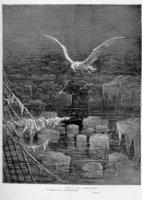Social scientists, or at least social scientists of a particular stripe (perhaps it would be better to say political scientists?), are fond of referring to culture as the "symbolic." Moreover, often if not always this terminology is both containment and diminution. Cultural conflicts and negotiations are "merely" symbolic; it is the matter of policy-making, economic development, the legal code, the use of force (or whatever) that counts. And, we might add, that can be counted. Relegating cultural processes to this other arena of the symbolic, viewing them as ancillary to the main event, is also a methodological presupposition: it clears the terrain of, above all, affect; it substitutes quantitative extension for qualitative intensity.
So, in excluding the symbolic for being a site of repetition, a place where fundamental conflicts are played out but in another register, such an approach discards while also tacitly acknowledging the specificity of the cultural. It brushes under the carpet, as it were, the ways in which even in its reiteration or reflection of positions established elsewhere, culture is non-coincident with (say) political interest. That non-coincidence is at best an aberration, an irrationality. Hence the myth of the "rational actor," who is of course a deculturated actor, an agent who behaves always and only in line with his or her interest.
 Meanwhile, traditional literary criticism has also understood the symbolic to be a form of repetition or reiteration. A symbol is an instance of double voicing: where a given word or thing signifies on two (or more) registers. Thus to say that, for example, the albatross in Coleridge's "Rime of the Ancient Mariner" functions as a symbol, is to say that the bird is more than it first appears: not only is it an element within the ostensible plot; it also carries with it broader connotations. So when the mariner kills the bird, he kills more than just a feathered beast.
Meanwhile, traditional literary criticism has also understood the symbolic to be a form of repetition or reiteration. A symbol is an instance of double voicing: where a given word or thing signifies on two (or more) registers. Thus to say that, for example, the albatross in Coleridge's "Rime of the Ancient Mariner" functions as a symbol, is to say that the bird is more than it first appears: not only is it an element within the ostensible plot; it also carries with it broader connotations. So when the mariner kills the bird, he kills more than just a feathered beast.Indeed, this symbolization is thematized within Coleridge's poem itself, which is in some ways a didactic text concerned precisely with the power of symbols.
And that is where the literary tradition and the social scientific diverge: the former ascribes power to the symbolic, where the latter denies it that power.
For in literature, the symbolic is viewed as the site of a particular intensity and for that reason the object of particular attention and interest. In the symbol's concentration and condensation of meaning and attention, it is ascribed a privileged mark of the literary itself, and of literature's capacity to affect and be affected. Whereas for the social scientist, the whiff of intensity provides an excuse for delegitimation.
But an anxiety over the power of the "merely" symbolic haunts social science still. God help us, after all, should people act affectively rather than "rationally."
No comments:
Post a Comment